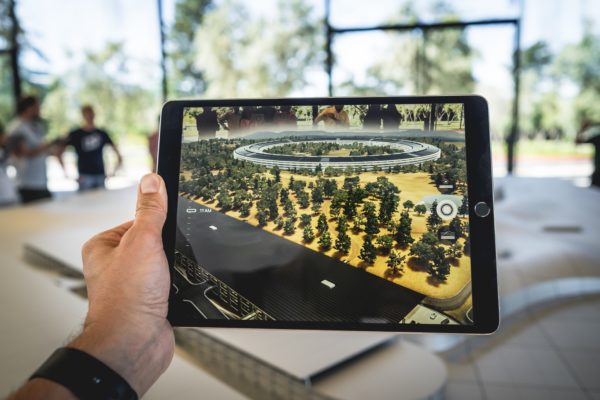Deakin University’s collaboration with Air Aroma turns regular scent diffusers into WiFi enabled ‘things’.
When attending an open house inspection, it’s common to find fresh bread or biscuits baking in the oven. The comforting warmth of that smell is specifically there to remind you of meals eaten in the comfort of your own home. That same scent tells you that you have the opportunity to make new memories here, in this particular kitchen, baking your own bread and biscuits.
As a marketing tool, scent helps to dictate how we’re supposed to feel about what’s being sold to us. But commercial shops don’t have access to an oven and sourdough to create ambience. Car sale rooms, salons and hotels rely on scent diffusers to create a welcoming environment – one where, ideally, you’ll open your wallet.
These diffusers are discretely tucked into ventilation, heating and air conditioning systems to better distribute the scent of choice. This can make accessing them a difficult task, especially as certain functions, such as the pump and fan, need to be manually manipulated.

To counteract this, researchers and engineers from Deakin’s Applied Artificial Intelligence Institute (A²I²) have collaborated with leading Australian-based scent marketer, Air Aroma, to develop diffusers that can be easily controlled from a smartphone.
The Air Aroma diffusers were modified by replacing their existing electronics and control system. The new system contains built-in WiFi and Bluetooth. As a result, the diffuser is capable of broadcasting its own WiFi hotspot, much like a modern smartphone, and can then be connected to any other WiFi enabled device, or even to conventional networks.
According to Rhys Hill, a member of the project’s R&D team, it’s this ability to connect to the internet that makes these diffusers Internet of Things (IoT) products.
“IoT is a way of conceptualising the idea that everything could be connected to the internet,” says Mr Hill, “not just as an interface for people to publish and access information, but for seemingly inanimate objects to actually generate, collect and collate information themselves.”
This notion of inanimate objects collecting data is not all that recent; devices such as the iPhone have the ability to calibrate themselves to the sound of the owner’s voice, so that only certain people can call upon Siri from that particular phone.
Mr Hill and fellow team member Stefanus Kurniawan, led by A²I²’s Dr Scott Barnett, were responsible for developing the product. As a team they created the initial prototypes, including mobile apps and cloud infrastructure, from which the diffusers can be controlled. There’s no longer a need to climb into ventilation shafts in order to schedule the timer.

The diffusers are also equipped with monitoring abilities, so that Air Aroma can be alerted whenever action needs to be taken. For instance, when the scent oil inside the device is running low, Air Aroma will be notified so that refills can be sent out before the customer needs to contact the company to order new ones.
Each diffuser will use scent oils at a different rate, depending on their location and conditions of use. In order to better gauge how soon refills will be required, the diffusors have the ability to collect data about the environment in which they’re being used.
Mr Hill says this kind of technology is transferable to a wide range of other industries where it’s important to monitor an environment or perform an action remotely.
The technology’s use in the agricultural field is also a possibility.
“A system similar to the one developed for Air Aroma could monitor solid moisture and control a watering system remotely to save water.”
Ron Driehuyzen, Technical Operations Manager of Air Aroma, found the collaborative process with Deakin to be informative and effective.
“Air Aroma’s partnership with A2I2 has given our team new insights and knowledge of IoT, enabling the project to run smoothly and move our business to the next level,” he said.
Melina Bunting
Staff writer



